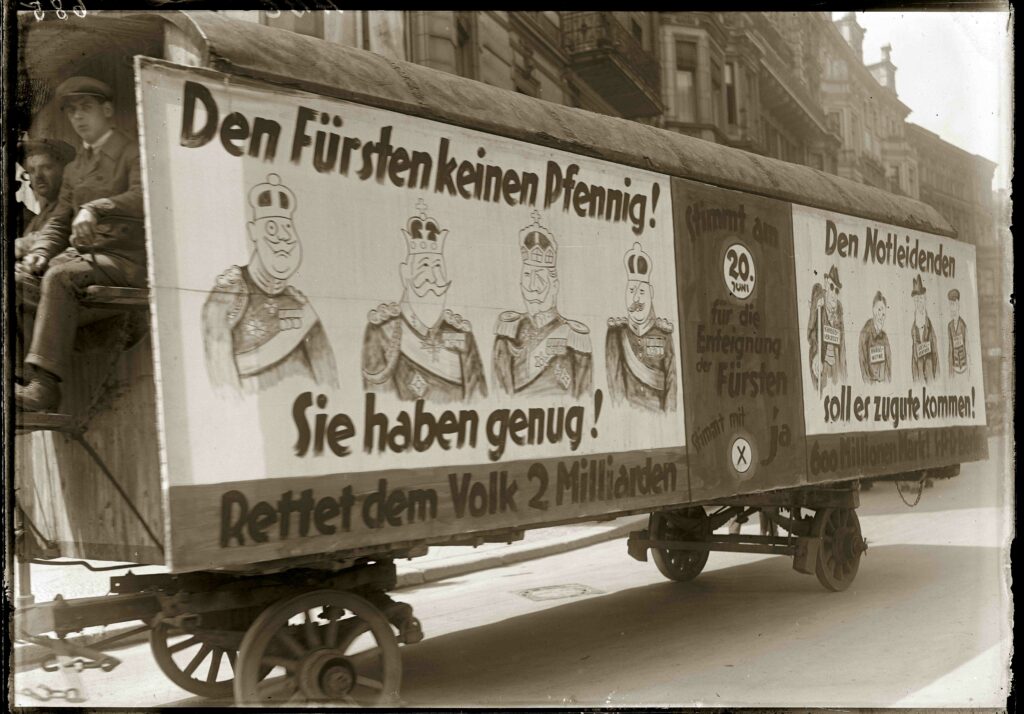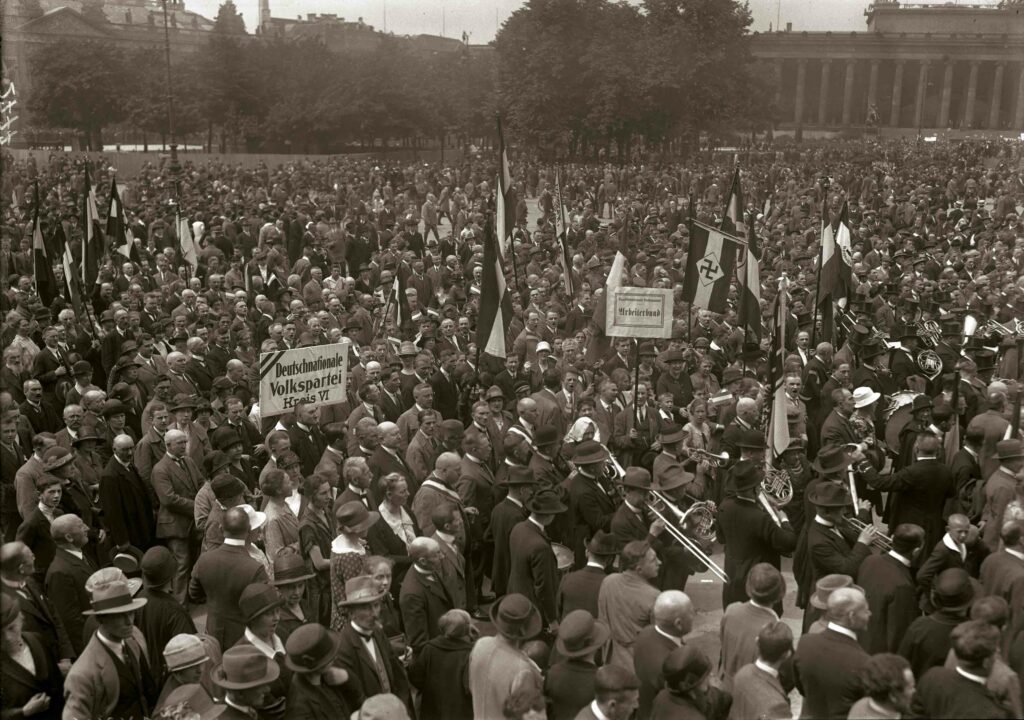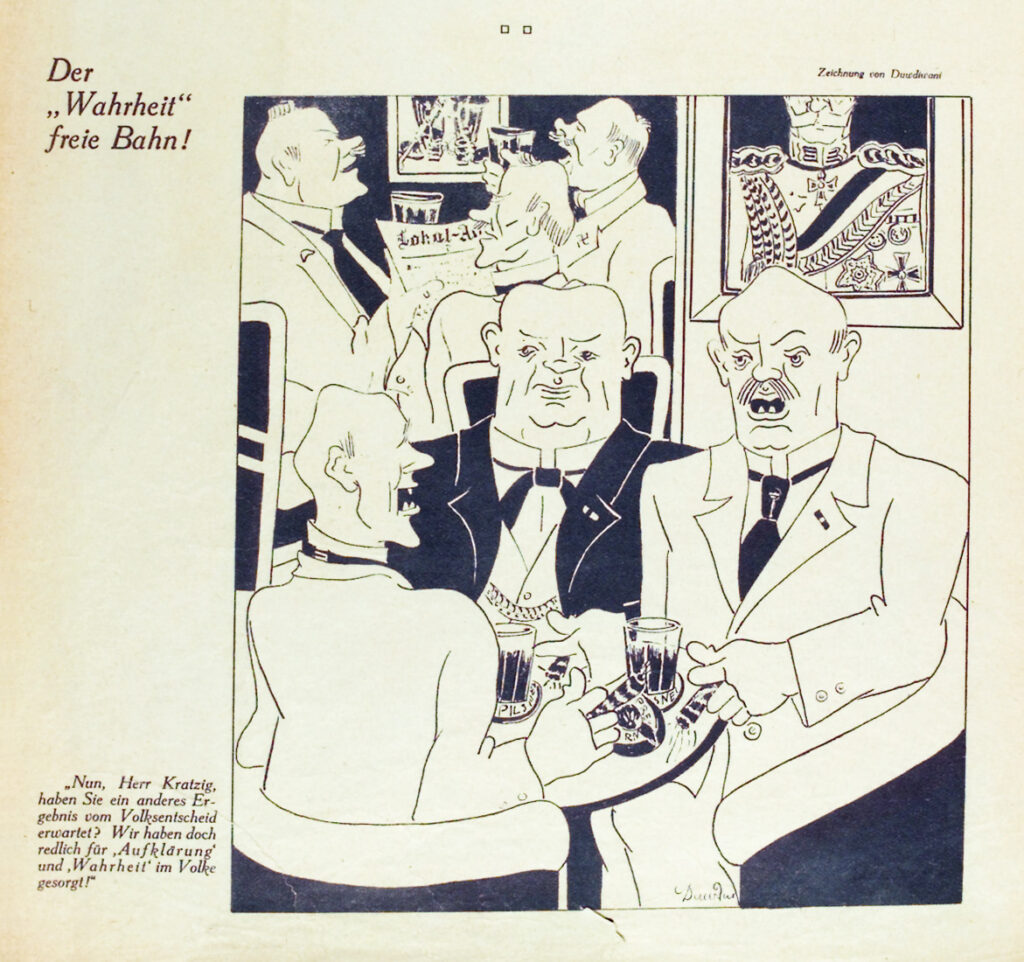Referendum on the expropriation of princes
After the November Revolution of 1918, a major point of discussion was what to do with the confiscated assets of the ousted princes. In 1926, the Communist Party of Germany (KPD) initiated a referendum with the goal of expropriating the assets without compensation. The KPD was joined by The Social Democratic Party of Germany (SPD) and individual members of the German Center Party (Zentrum) and the German Democratic Party (DDP).
Referendum on the expropriation of princes
After the November Revolution of 1918, a major point of discussion was what to do with the confiscated assets of the ousted princes. In 1926, the Communist Party of Germany (KPD) initiated a referendum with the goal of expropriating the assets without compensation. The KPD was joined by The Social Democratic Party of Germany (SPD) and individual members of the German Center Party (Zentrum) and the German Democratic Party (DDP).
Conversely, the German National People’s Party (DNVP) and the National Socialist German Workers’ Party (NSDAP) launched a major propaganda campaign against this effort, which attempted to portray the expropriation of princes as the first step in a Bolshevik plan for the future expropriation of the assets and property of all.
The referendum on “Expropriation of the Princes’ Assets,” was held in March 1926 and more than three times the required support threshold (10 % of eligible voters). On May 6, the government submitted the draft “Princes’ Compromise” law to the Reichstag.
With the intent of steering the referendum in the direction of the right-wing conservatives, Reich President Paul von Hindenburg (1847–1934) considered the expropriation of the princes to be a confiscation of property and thus not in conformity with the constitution. By classifying the case as such, the referendum would require the approval of at least 50 % of all 39.7 million eligible voters to pass. On June 20, 1926, however, only 15.6 million cast ballots. Although some 14.5 million ultimately voted “yes” to expropriating the princes and only about 0.59 million voted “no,” the referendum failed.
A Clear Path for the "Truth"!
“Well, Mr. Kratzig, did you expect a different result from the referendum? We have honestly ensured ‘enlightenment’ and ‘truth’ among the people!”
After the failure of the referendum on the expropriation of princes, representatives of right-wing conservative parties mock SPD Reichstag deputy Hermann Krätzig (1871–1954) under a portrait of Emperor Wilhelm II.
Gerhard Immler: Volksabstimmung »Entschädigungslose Fürstenenteignung« 1926. In: Historisches Lexikon Bayerns, 2006.
Online: https://www.historisches-lexikon-bayerns.de/Lexikon/Volksabstimmung_%22Entsch%C3%A4digungslose_F%C3%BCrstenenteignung%22,_1926
Otmar Jung: Direkte Demokratie in der Weimarer Republik. Die Fälle »Aufwertung«, »Fürstenenteignung«, »Panzerkreuzerverbot« und »Youngplan«. Frankfurt a. M./New York 1989.
Karl Heinrich Kaufhold: Fürstenabfindung oder Fürstenenteignung? Der Kampf um das Hausvermögen der ehemals regierenden Fürstenhäuser im Jahre 1926 und die Innenpolitik der Weimarer Republik. In: Günther Schulz / Markus A. Denzel (Hg.): Deutscher Adel im 19. und 20. Jahrhundert. Büdinger Forschungen zur Sozialgeschichte 2002 und 2003 (Deutsche Führungsschichten in der Neuzeit 26). Sankt Katharinen 2004, S. 261–285.
Thomas Kluck: Protestantismus und Protest in der Weimarer Republik. Die Auseinandersetzungen um Fürstenenteignung und Aufwertung im Spiegel des deutschen Protestantismus. Mit einem Vorwort von Günter Brakelmann. Frankfurt a. M. u. a. 1996.
Ulrich Schüren: Der Volksentscheid zur Fürstenenteignung 1926. Die Vermögensauseinandersetzung mit den depossedierten Landesherren als Problem der deutschen Innenpolitik unter besonderer Berücksichtigung der Verhältnisse in Preußen. Düsseldorf 1978.
Verband der Historiker und Historikerinnen Deutschlands e.V.: Die Klagen der Hohenzollern – eine Dokumentation. (2021)
Online: https://wiki.hhu.de/display/HV/Hohenzollern-Klage-Wiki


